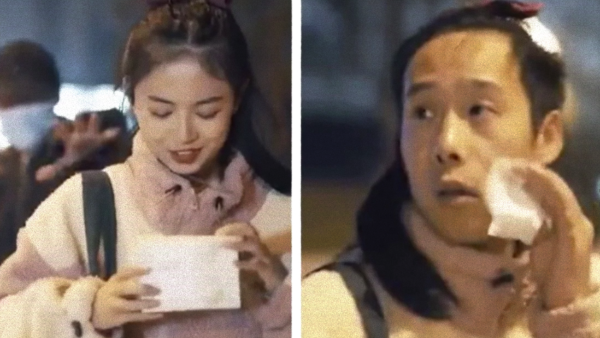A makeup remover advertisement had been pulled off the screens after triggering a wave of backlash over what viewers described as "blaming victims" of rape, sparking a nationwide conversation over how Chinese media handles rape topics.
(Summary of new Purcotton Ad, video in link)
— The Xing Tian 刑天 (@TheXingtian) January 8, 2021
Ladies, are you worried about being raped? Use Purcotton makeup remover and that pesky rapist will run screaming, cause you are hideous without makeup and no man would want you.
Rape culture in #China, #women https://t.co/ScPrJeWf6Q pic.twitter.com/4NSj7ZkSa9
In the short ad, a young woman is seen walking down the street before noticing a masked man approaching her, which urges her to use one of Purcotton wipes to remove her make up as he gets closer. The attacker would then walk away after seeing her without her makeup, in a message that the company's wipes "protect women from rape."
Consequently, viewers of the ad took to social media protesting the content of the ad, saying that its message is not only insensitive to rape survivors as it implies that "their looks drew rapists' interests," but also suggests that "women are only attractive when they wear makeup."
Purcotton put out an apology to their controversial ad. The apology is "sorry you got offended, now let me tell you how awesome we are as a company and why you should buy our products."
— The Xing Tian 刑天 (@TheXingtian) January 11, 2021
This ad and the response is #China rape culture in a nutshell. #women https://t.co/Vt99747iEe pic.twitter.com/8ZaVXsGNIm
China's controversial ad by Purcotton pulled after backlash over alleged victim-blaming - https://t.co/ZGwQfhmwcQ - pic.twitter.com/RrDX5DHKIc
— Styleupnow (@StyleUpNow2017) January 12, 2021
The outrage caused by the ad pushed Purcotton to cancel it and post an apology online, but it didn't end the conversation over what internet users termed as "rape culture in China" and how rape survivors are shamed despite being the victims.
Last week, another controversy was stirred when the Chinese Embassy in the US claimed that local authorities detaining thousands of Uyghur women in what the Chinese government calls "re-education camps" have successfully "emancipated the brains of Uyghur women" so they are "no longer baby-making machines."







